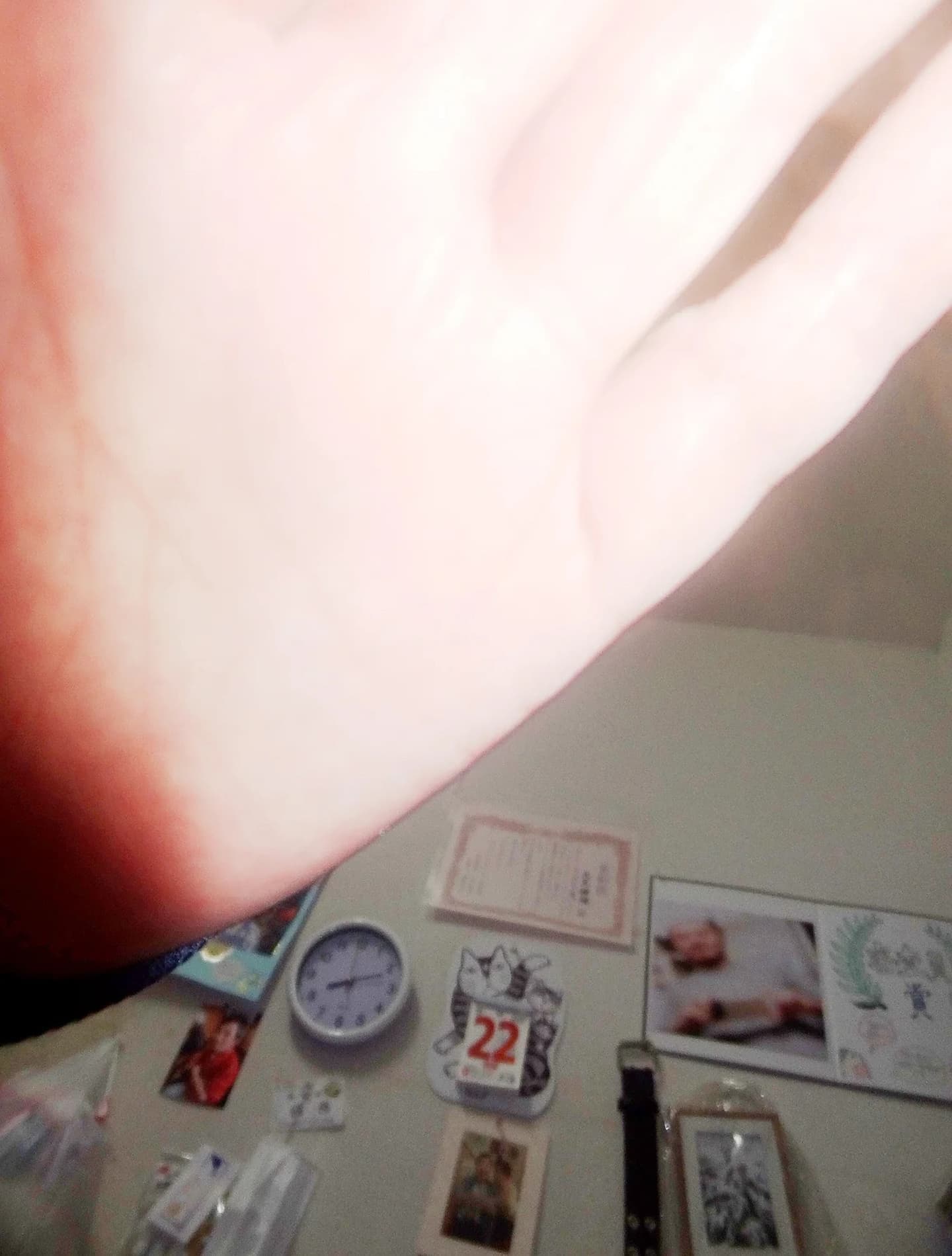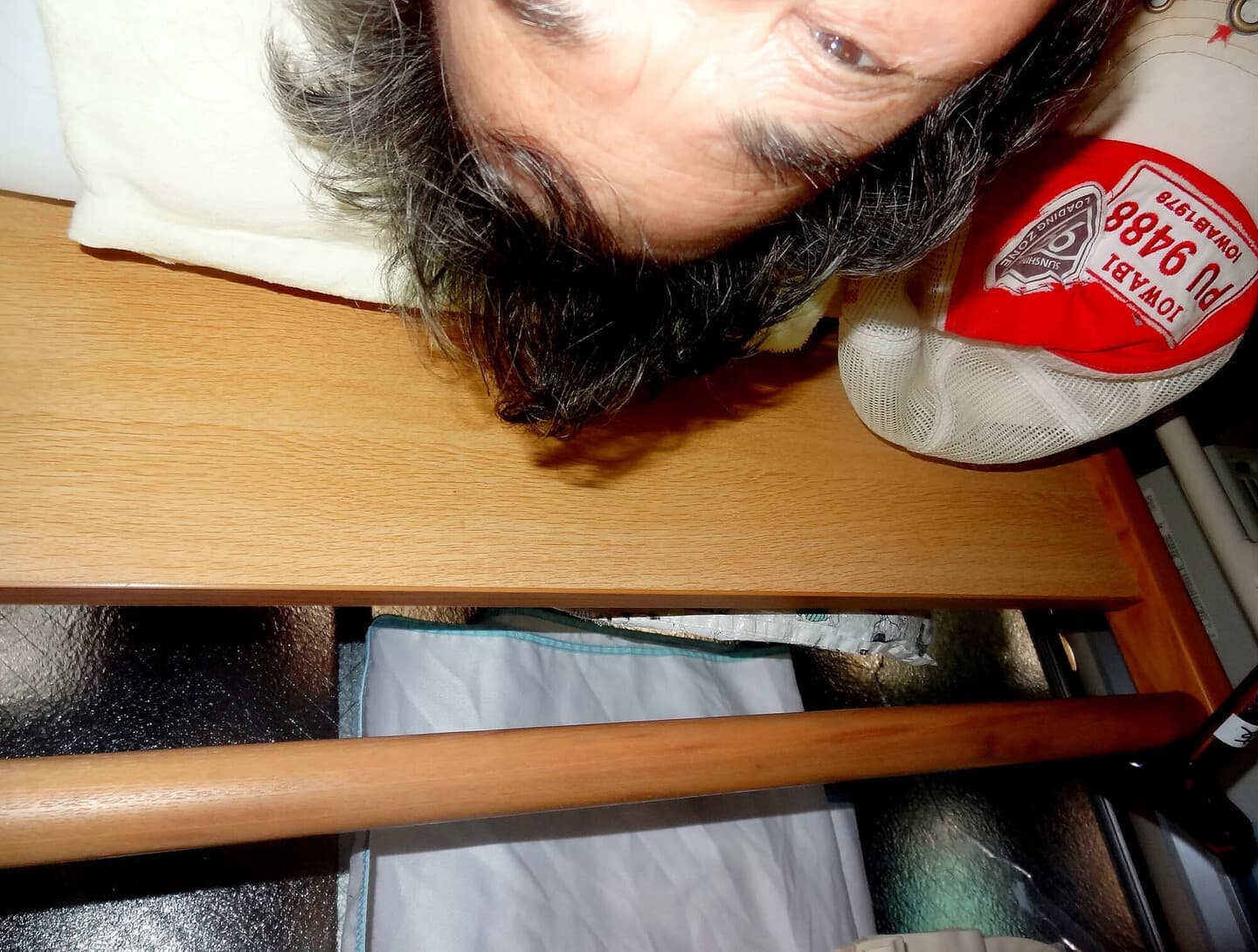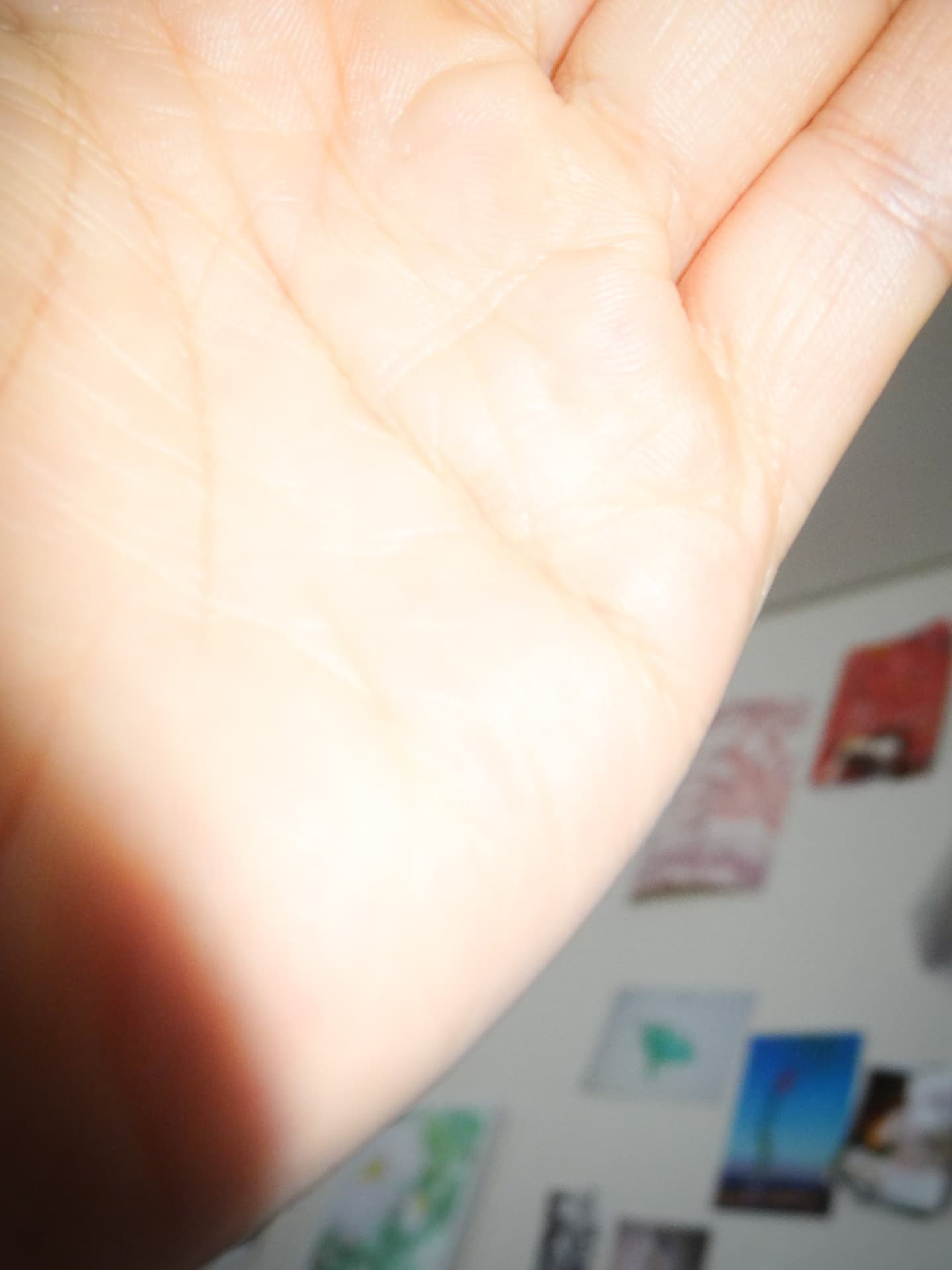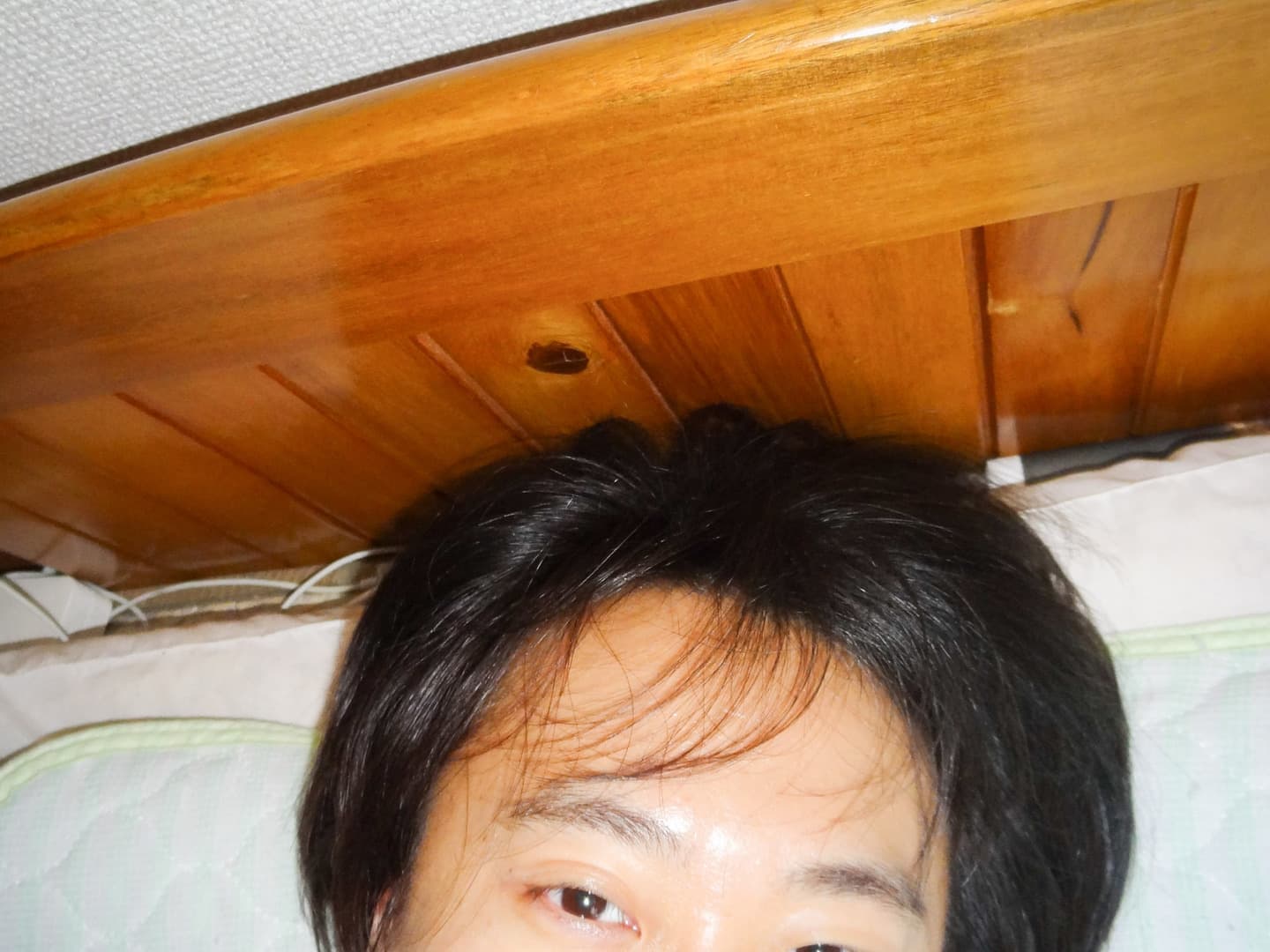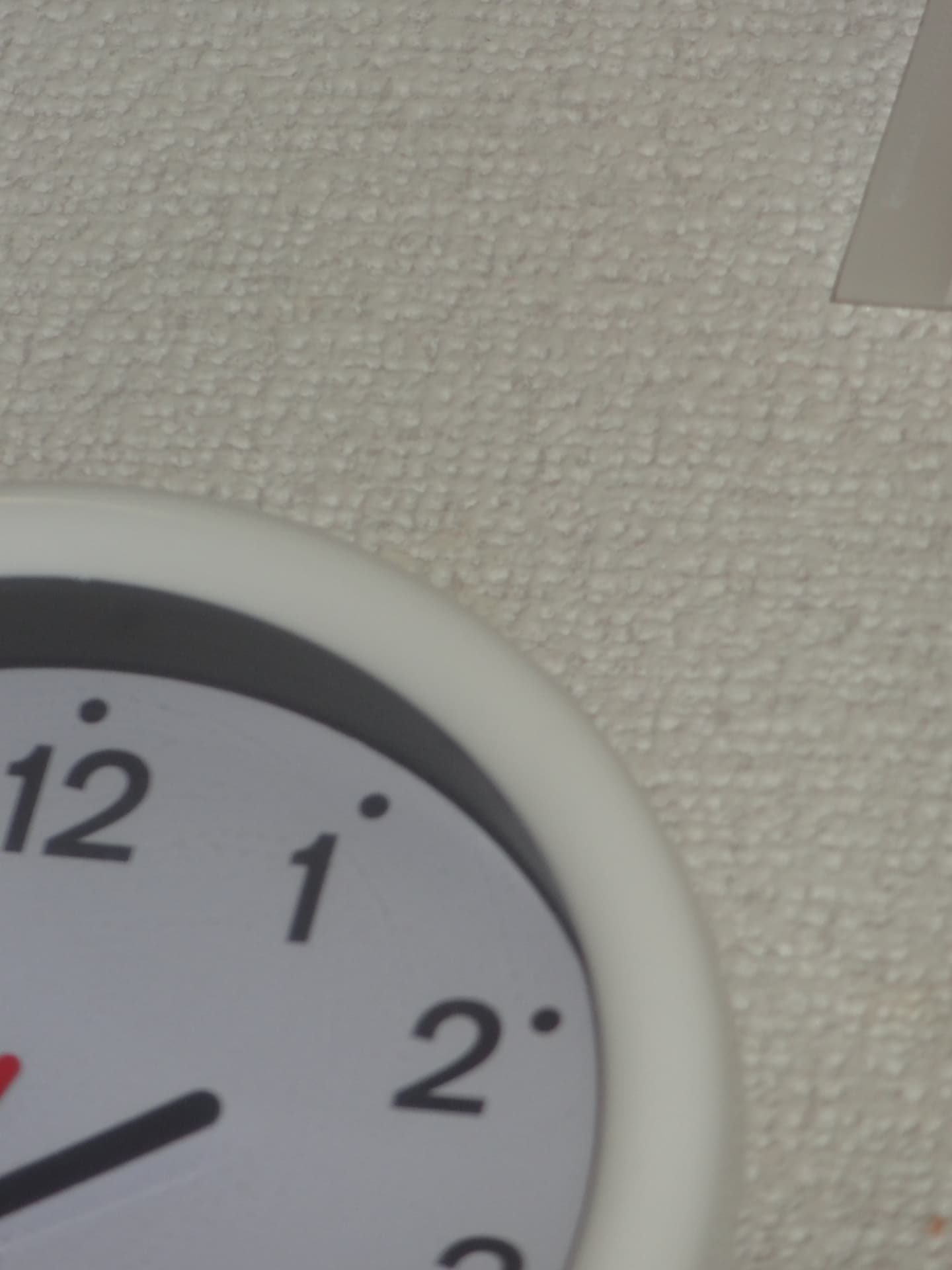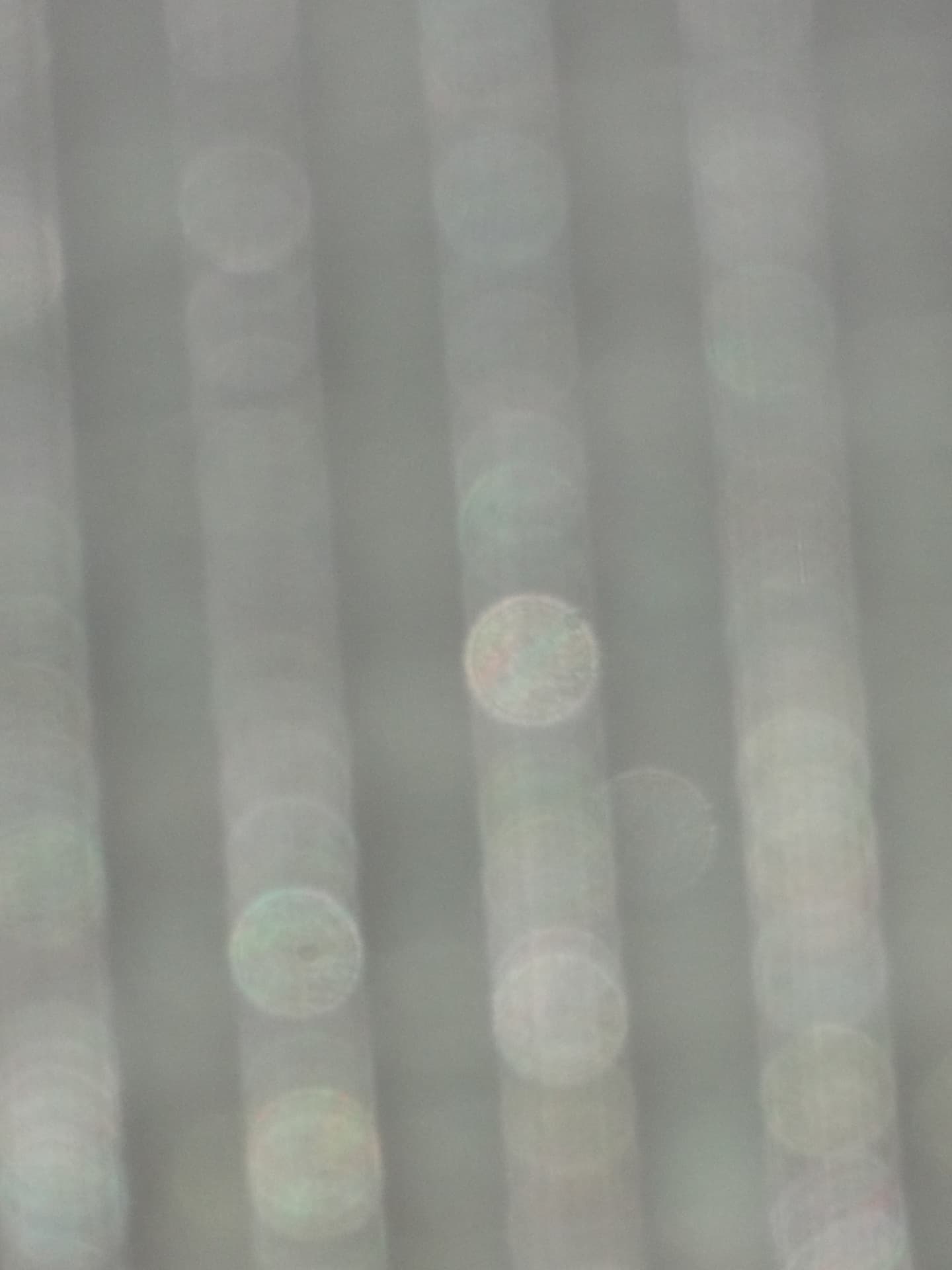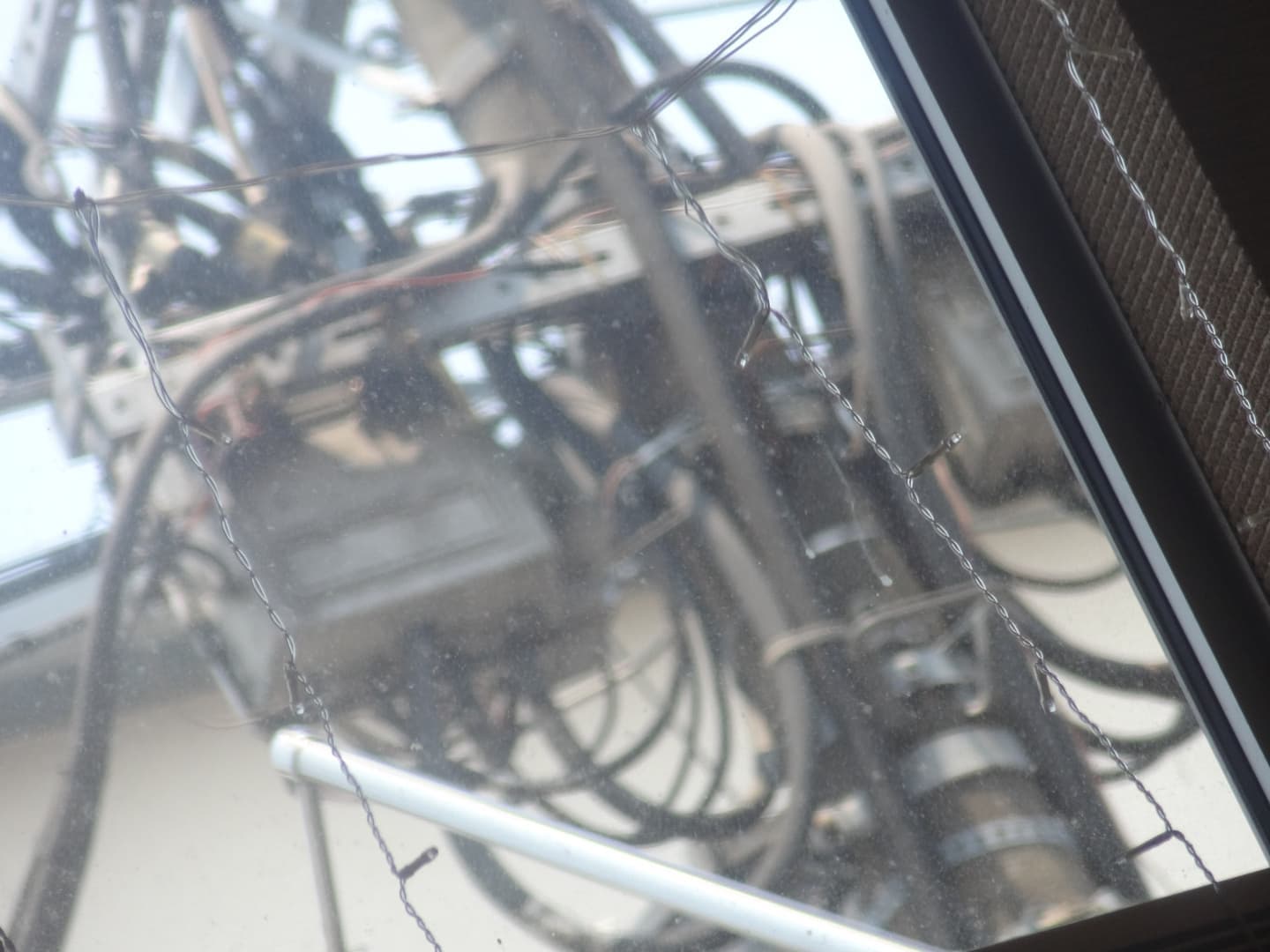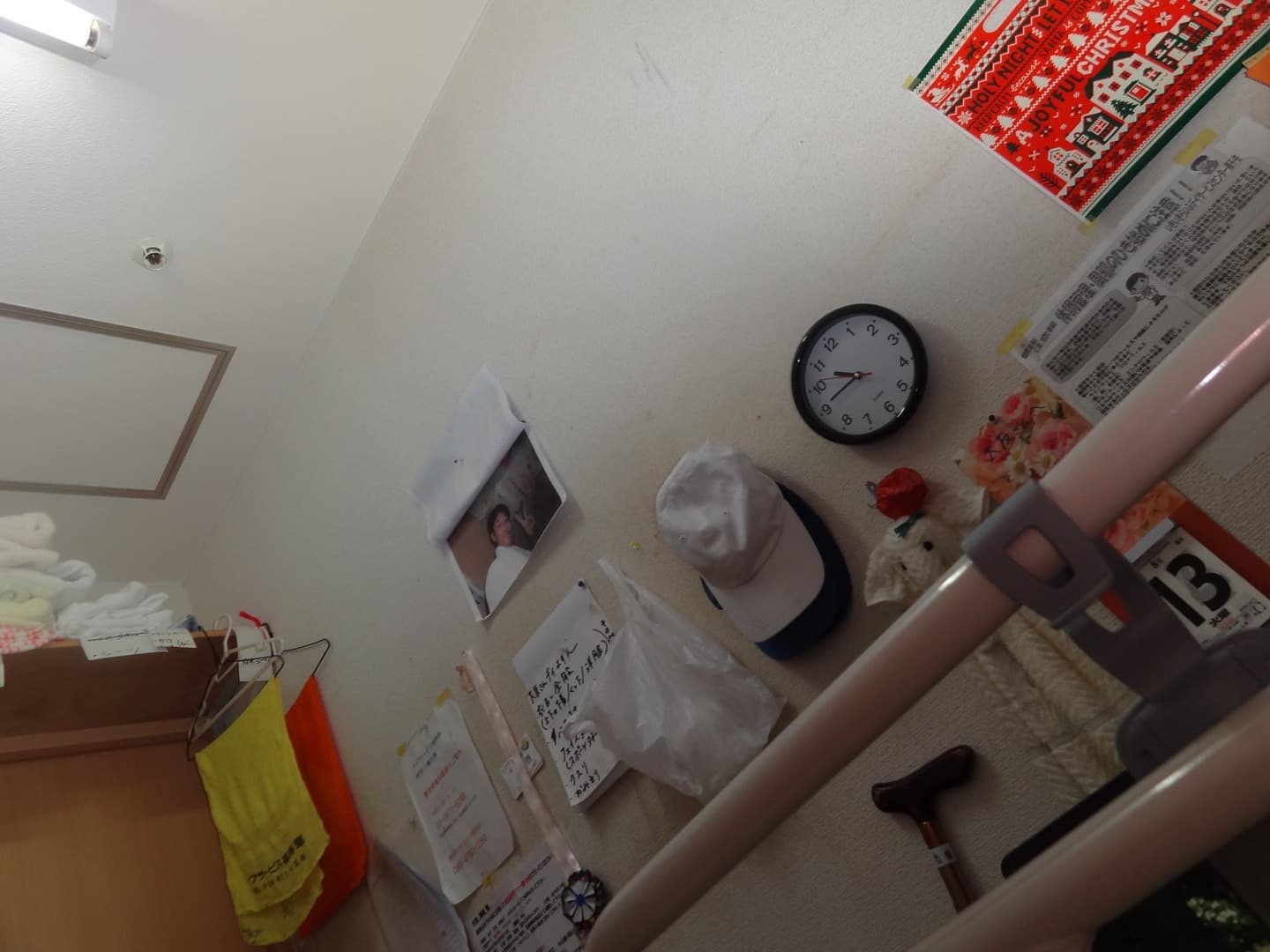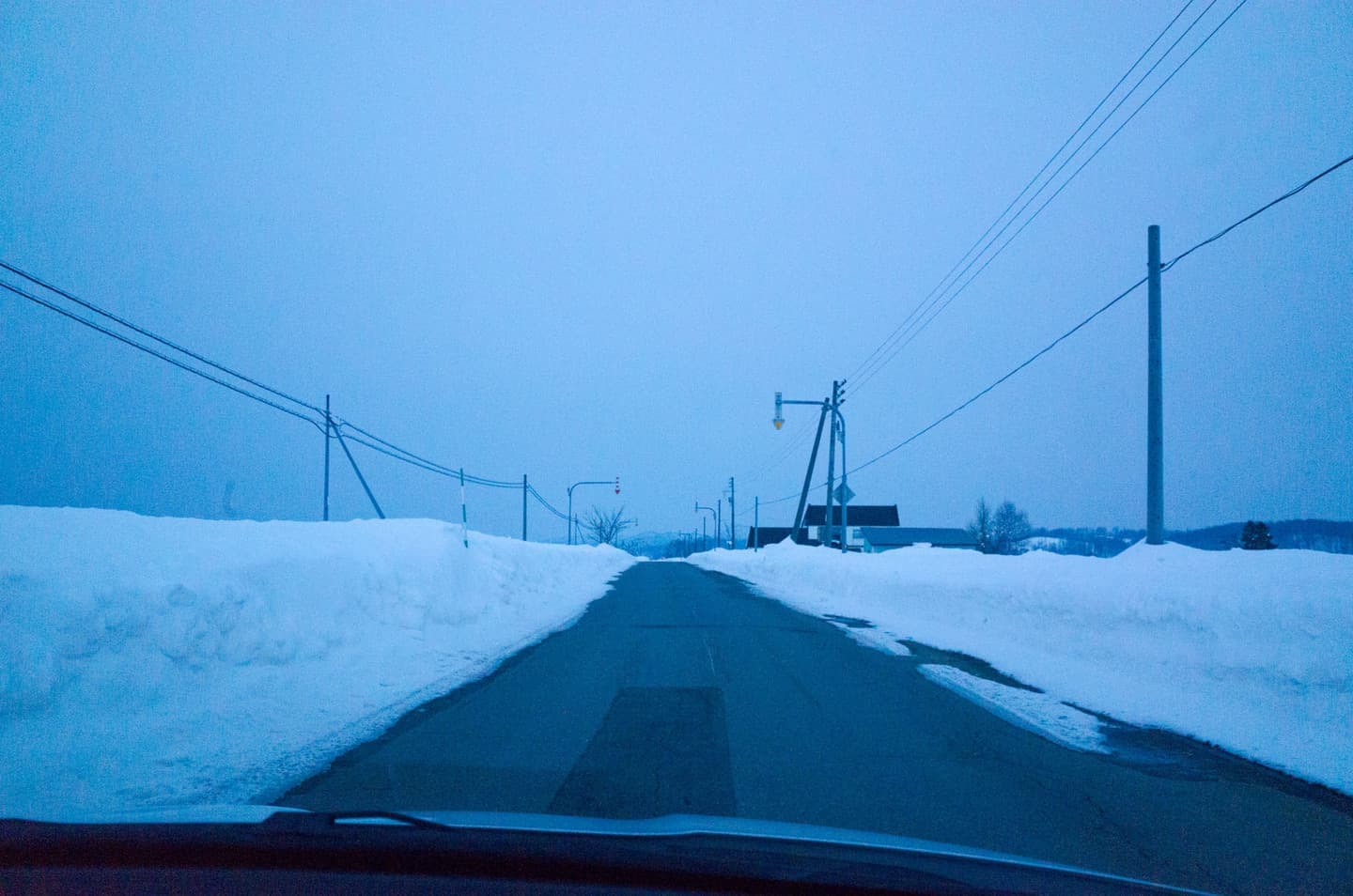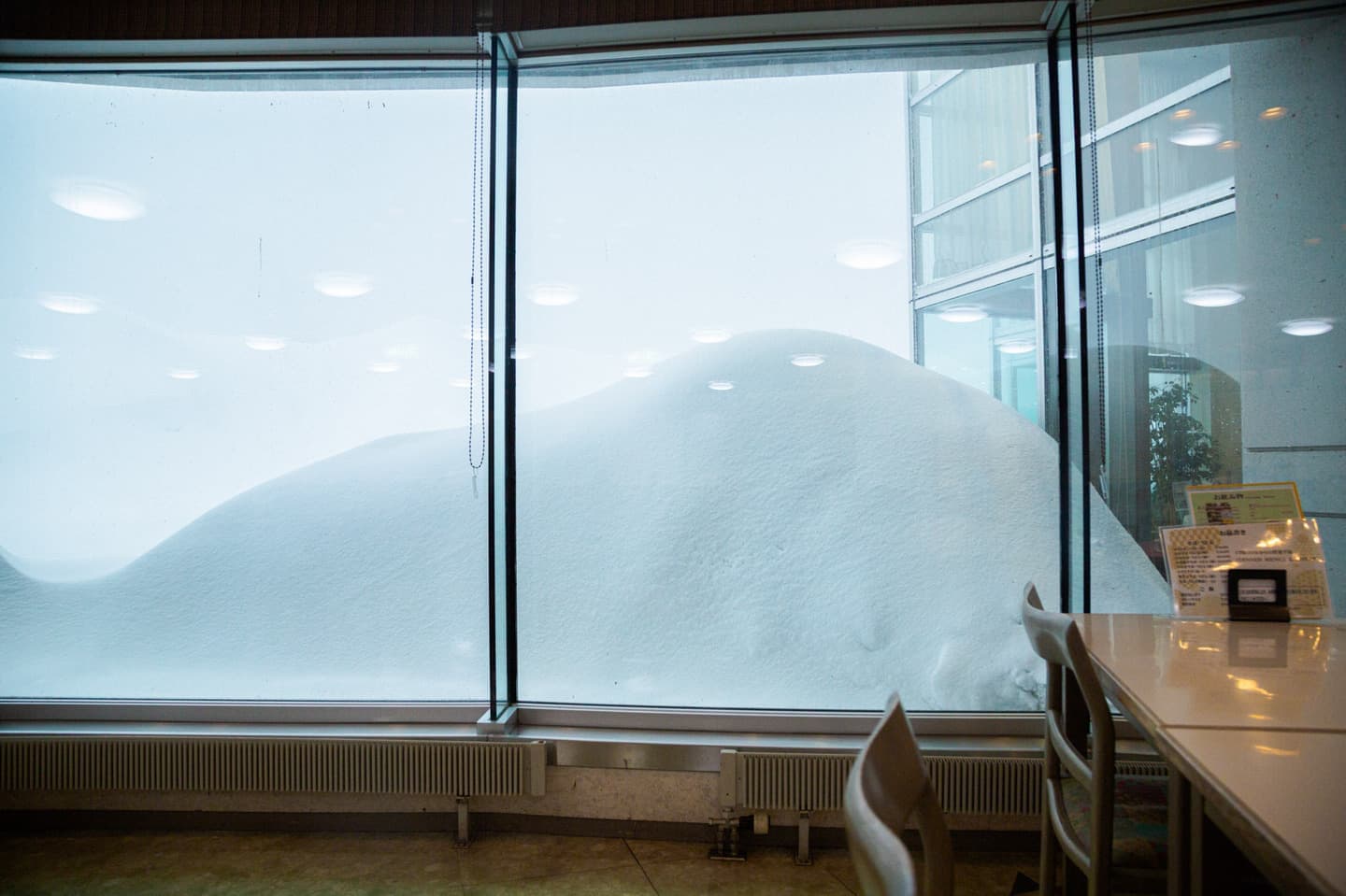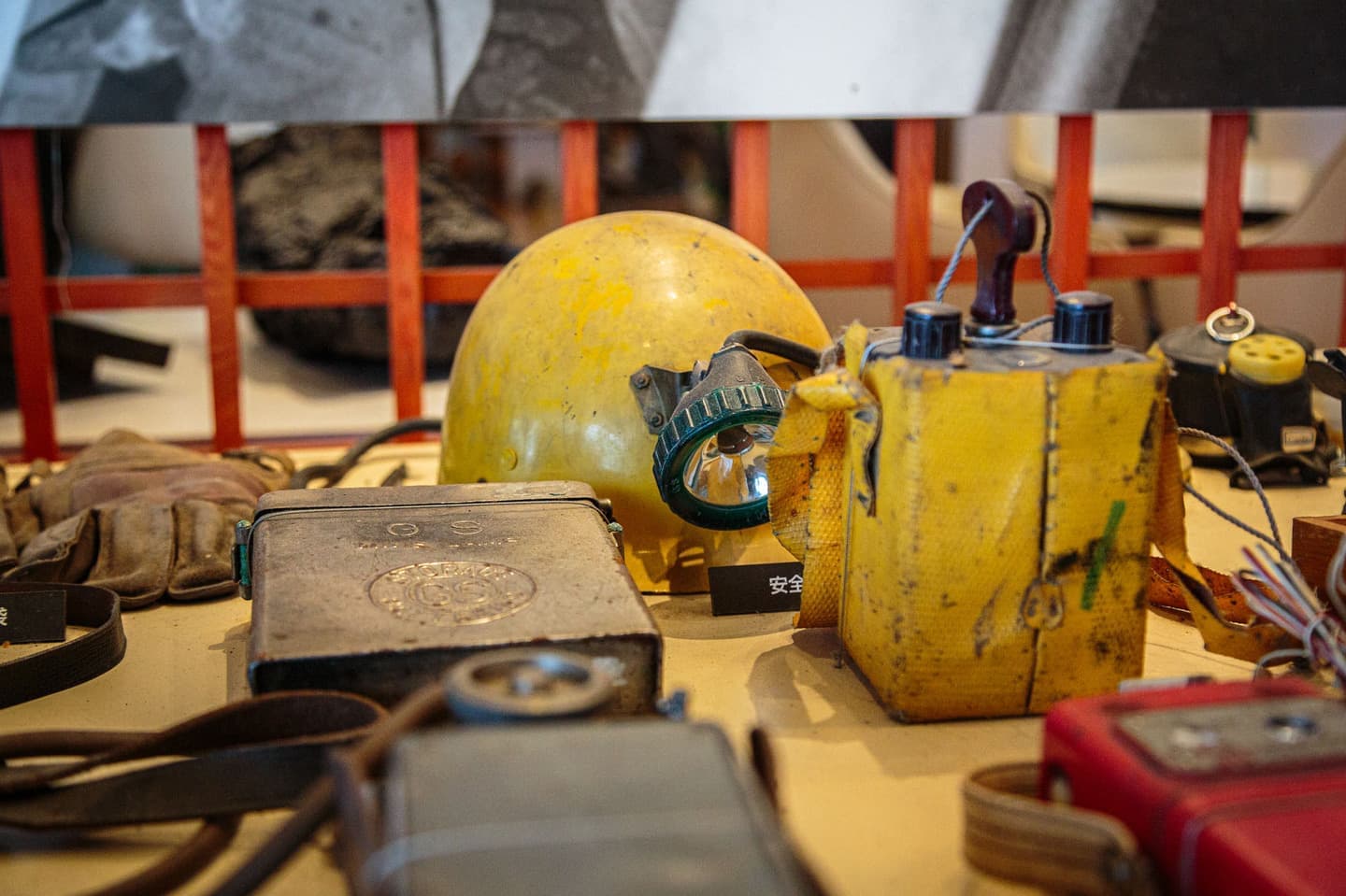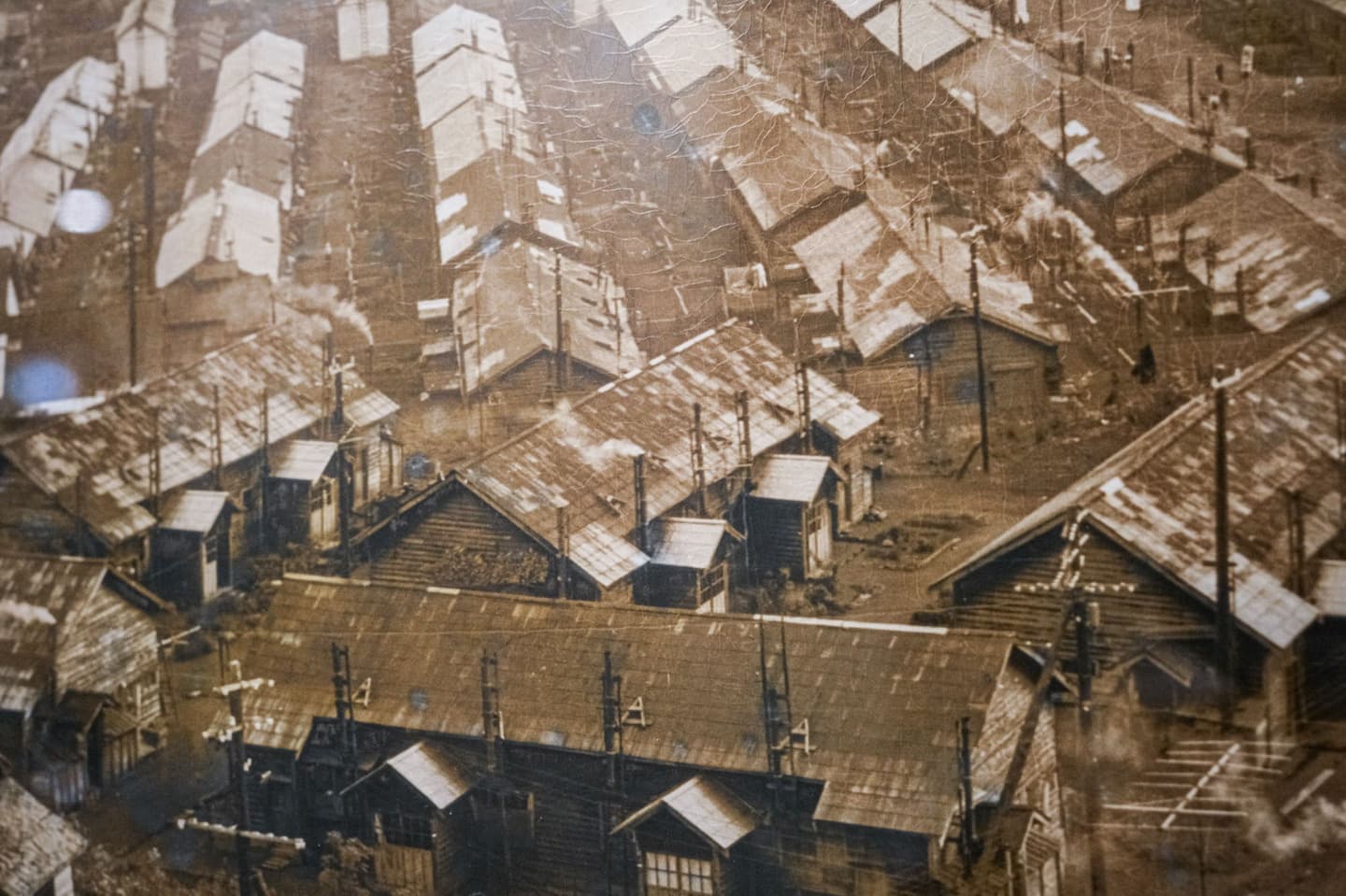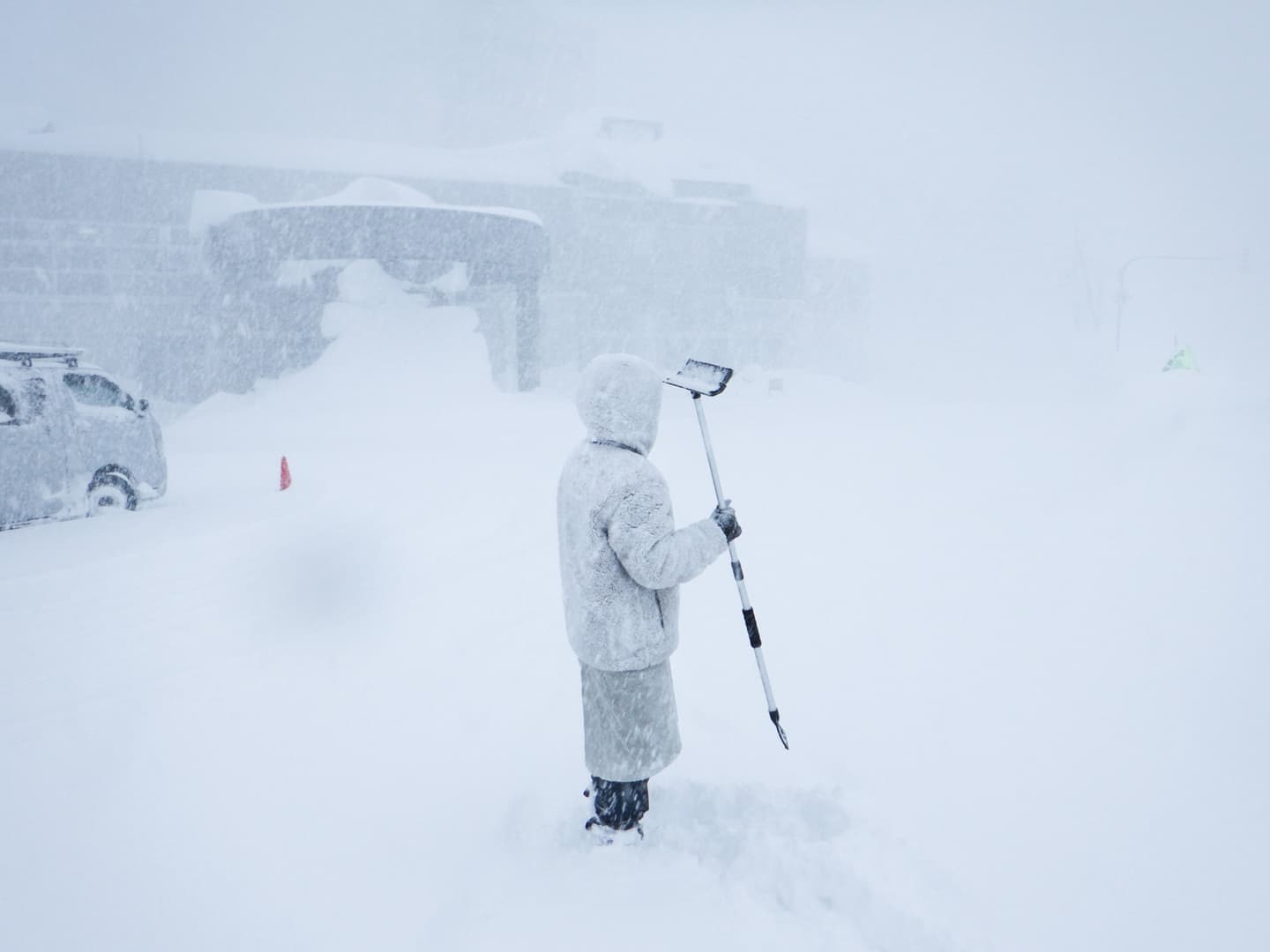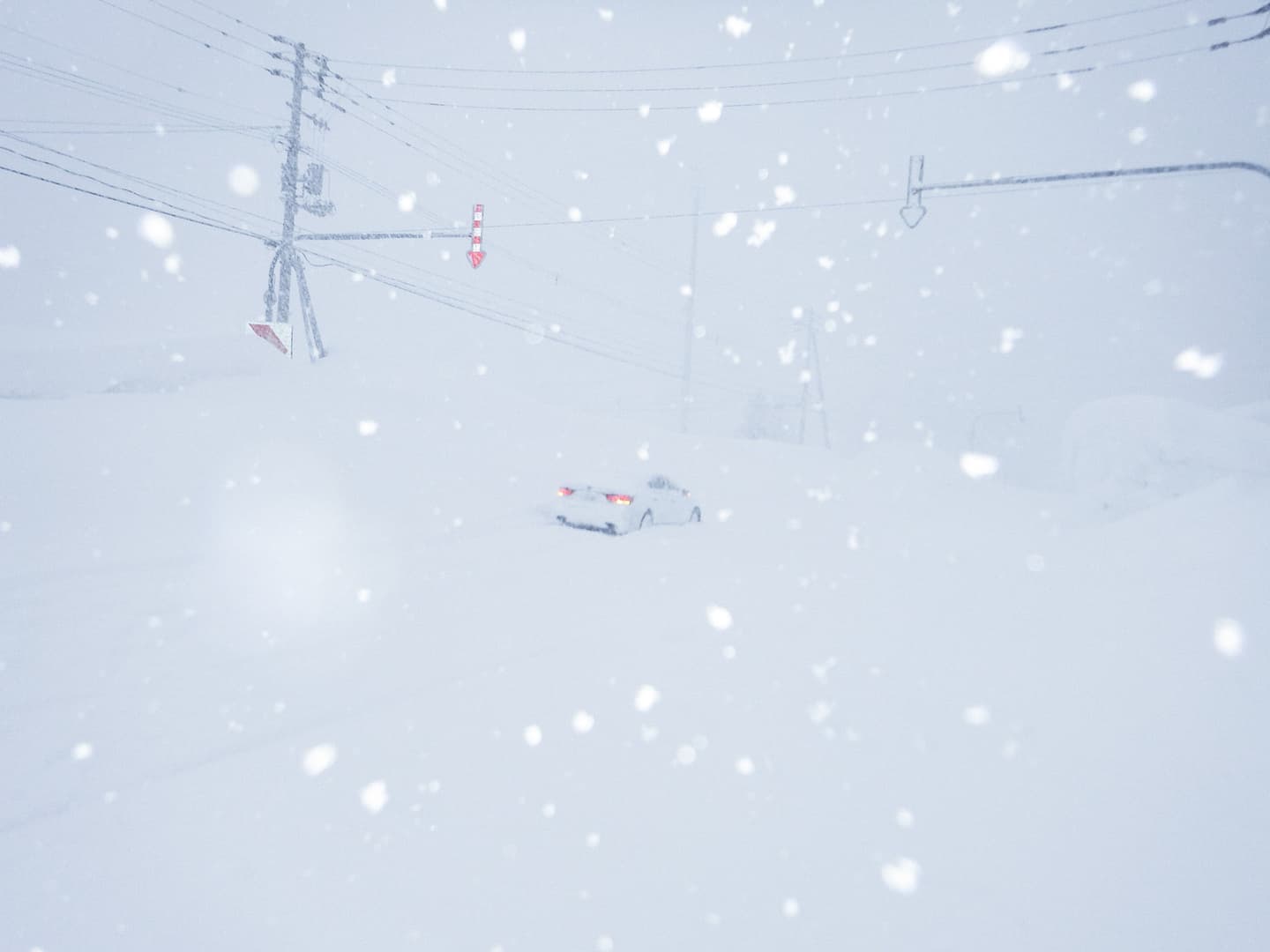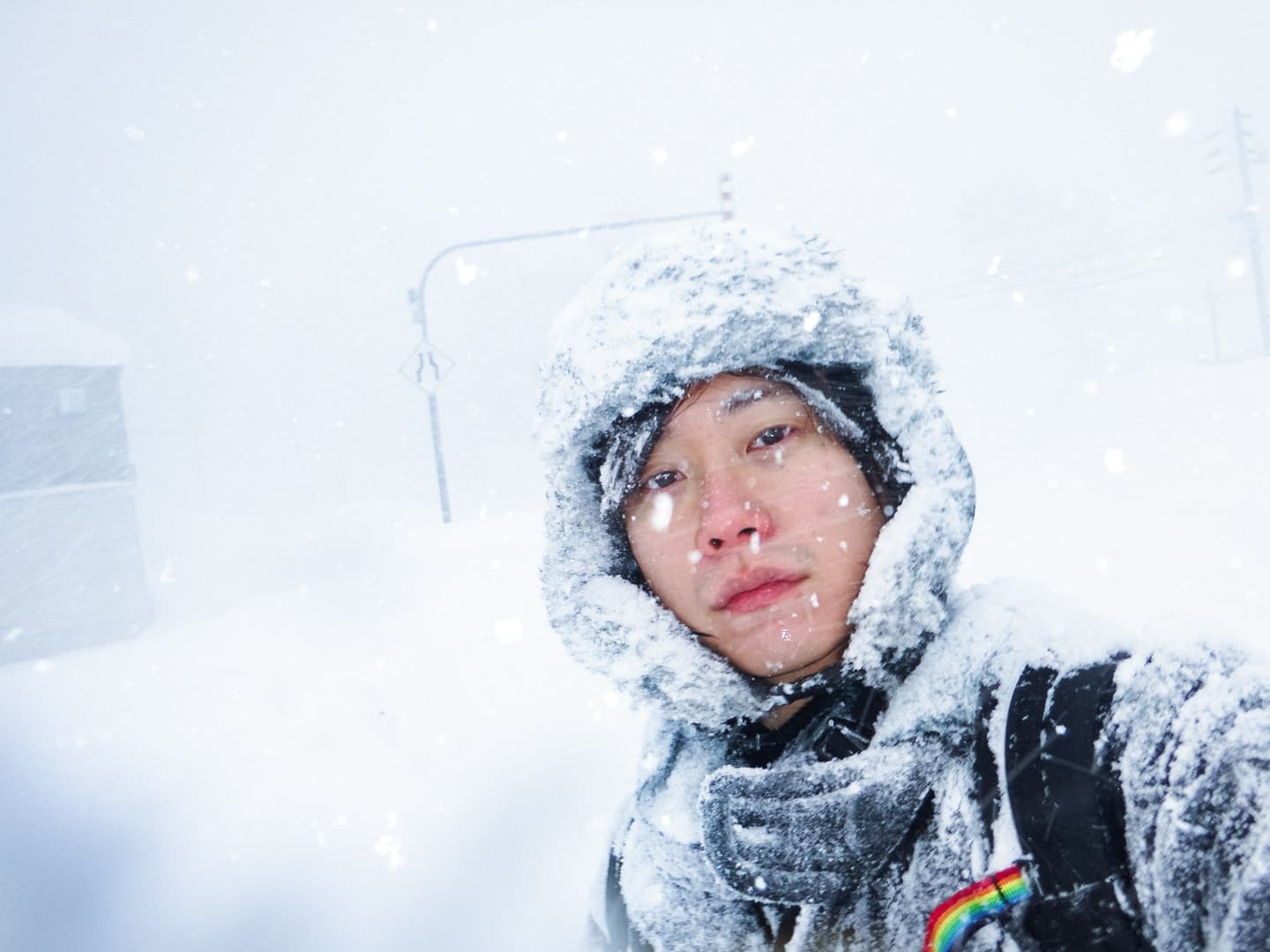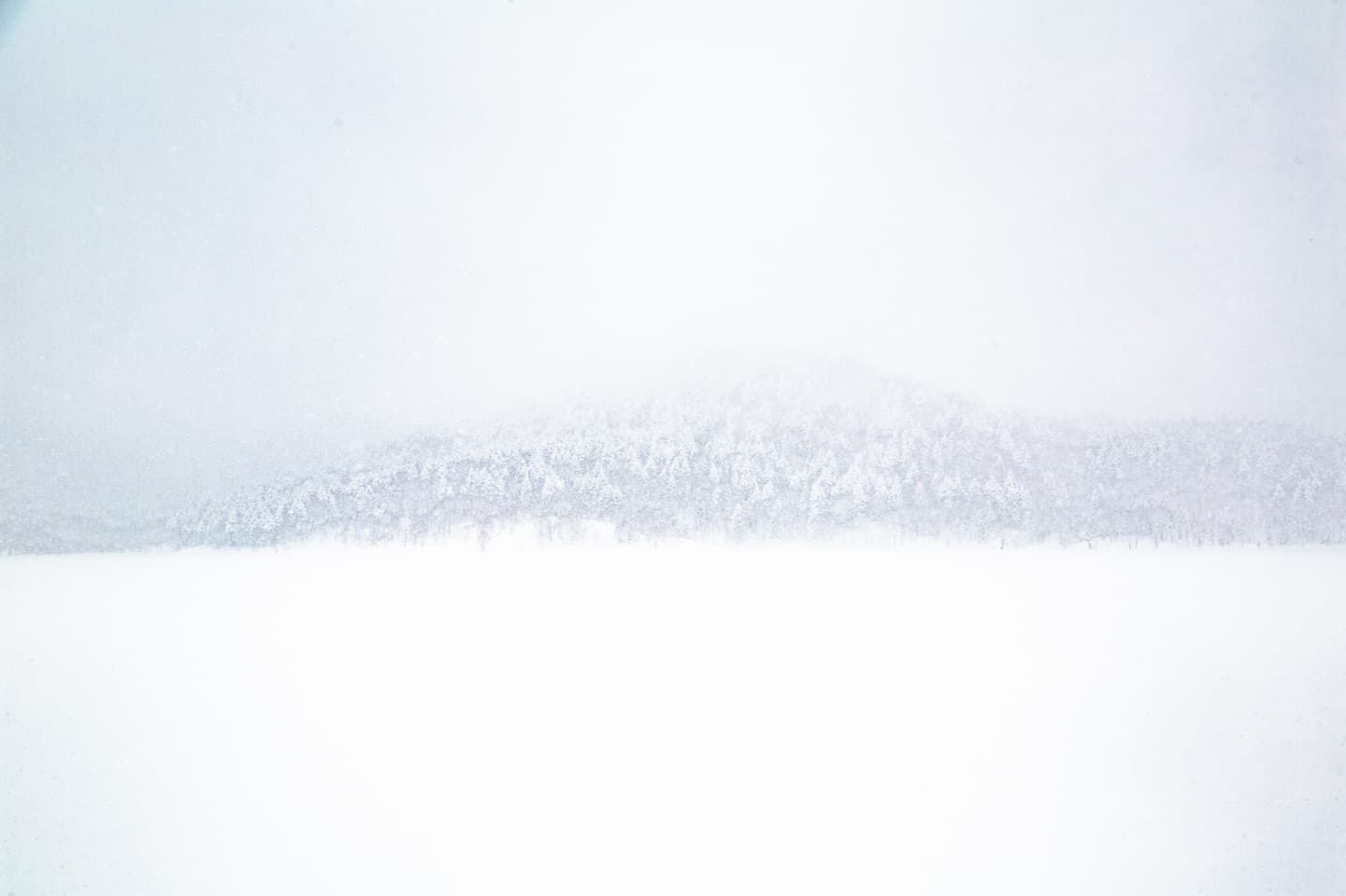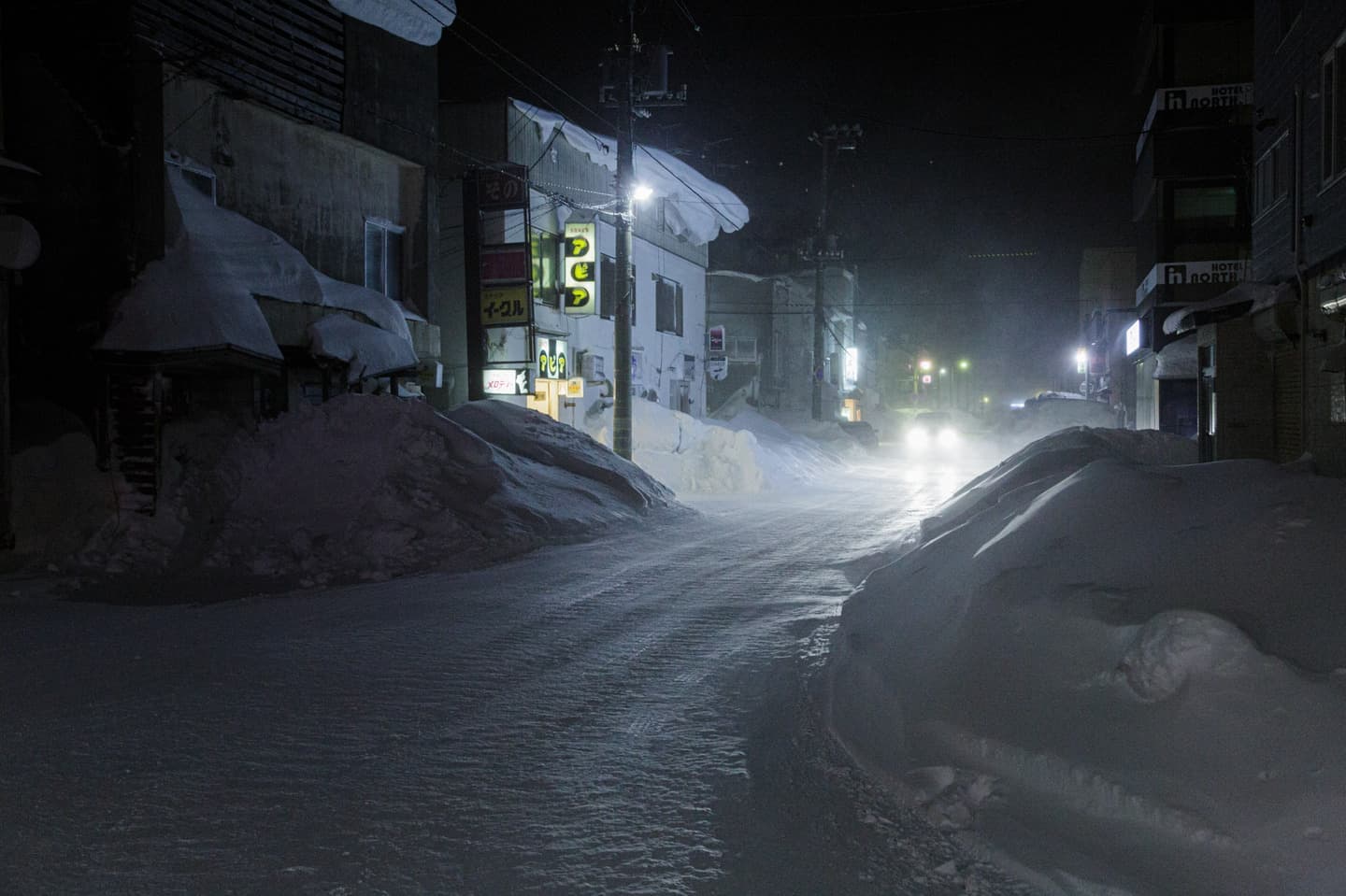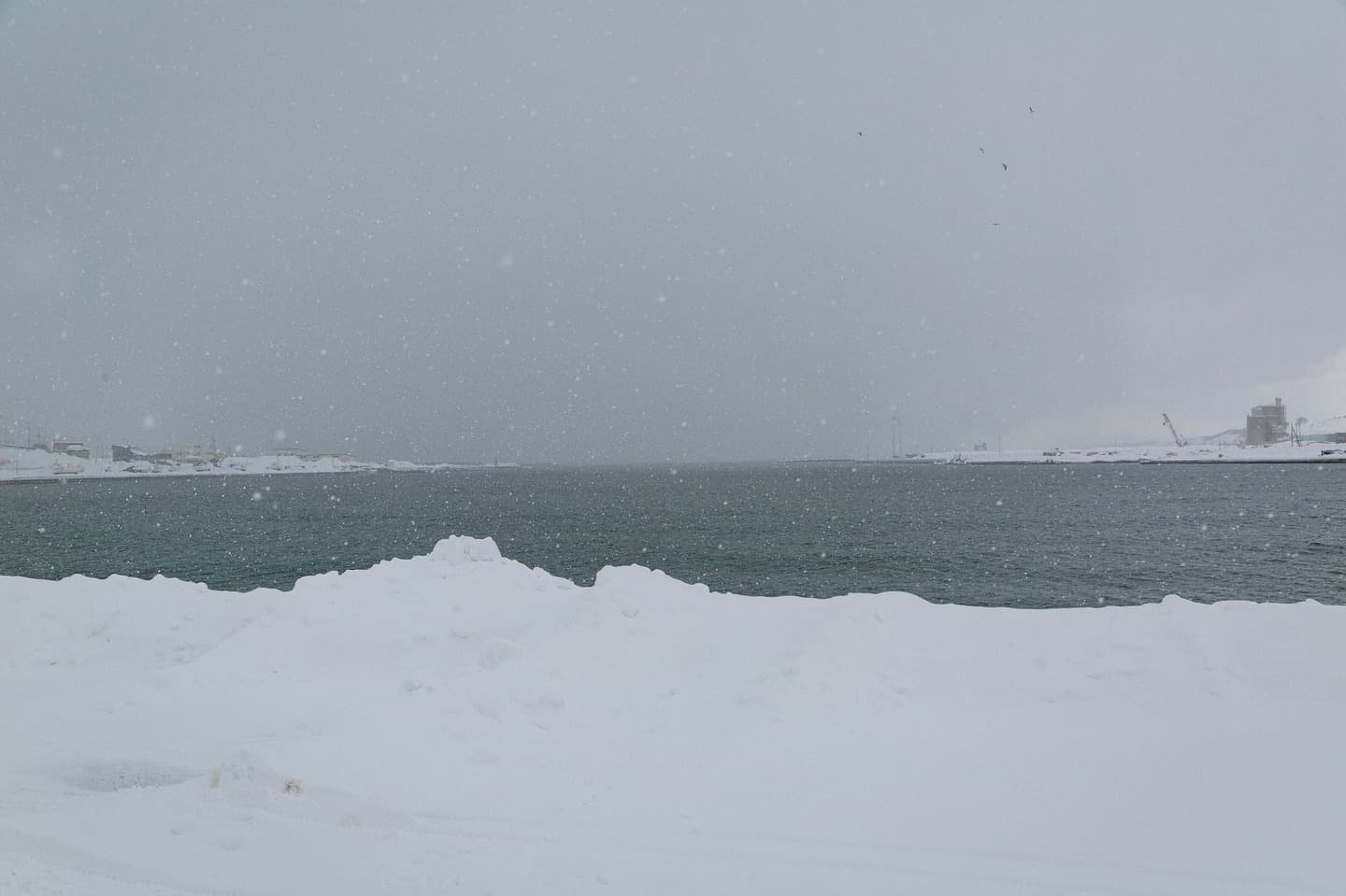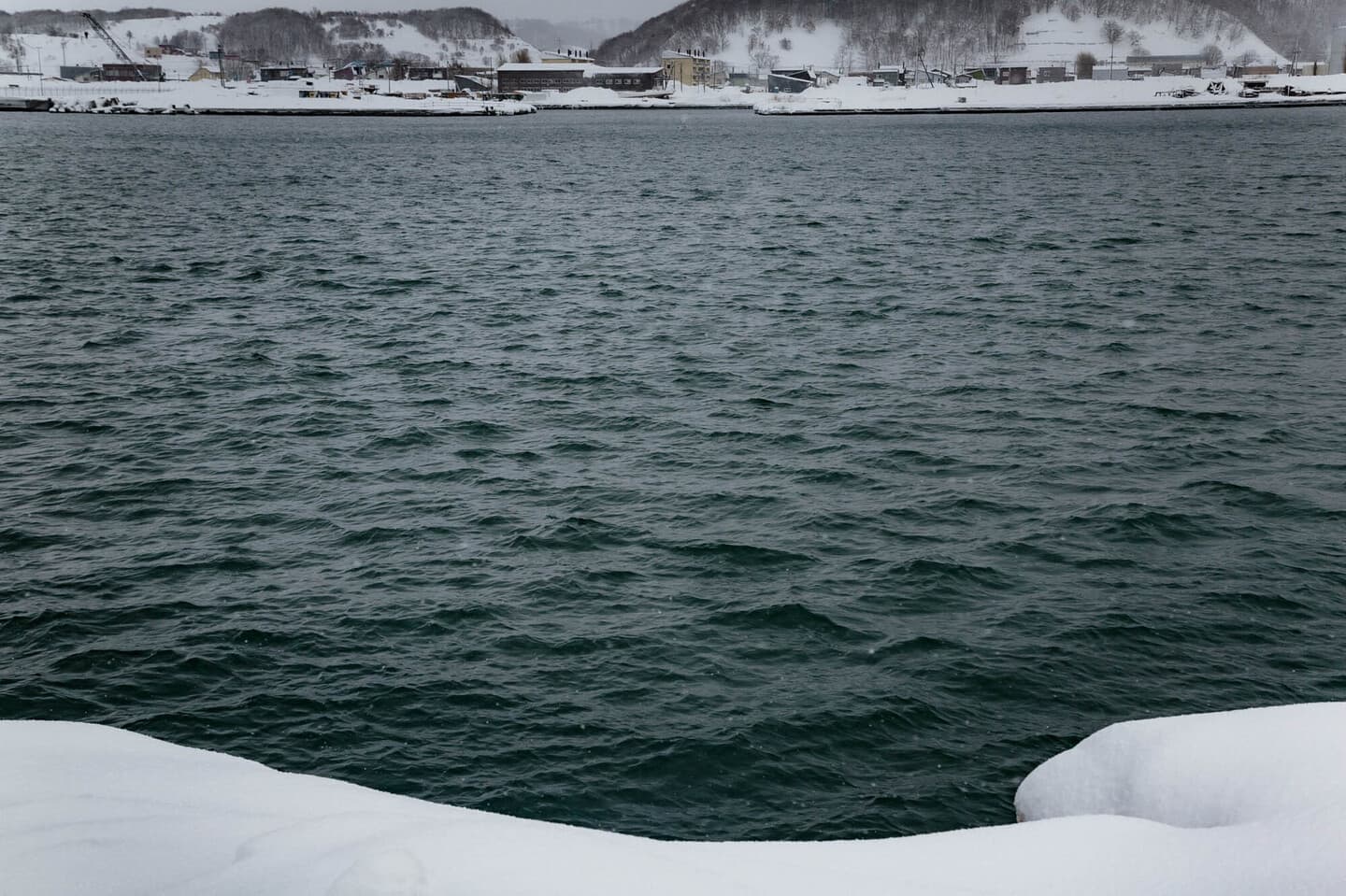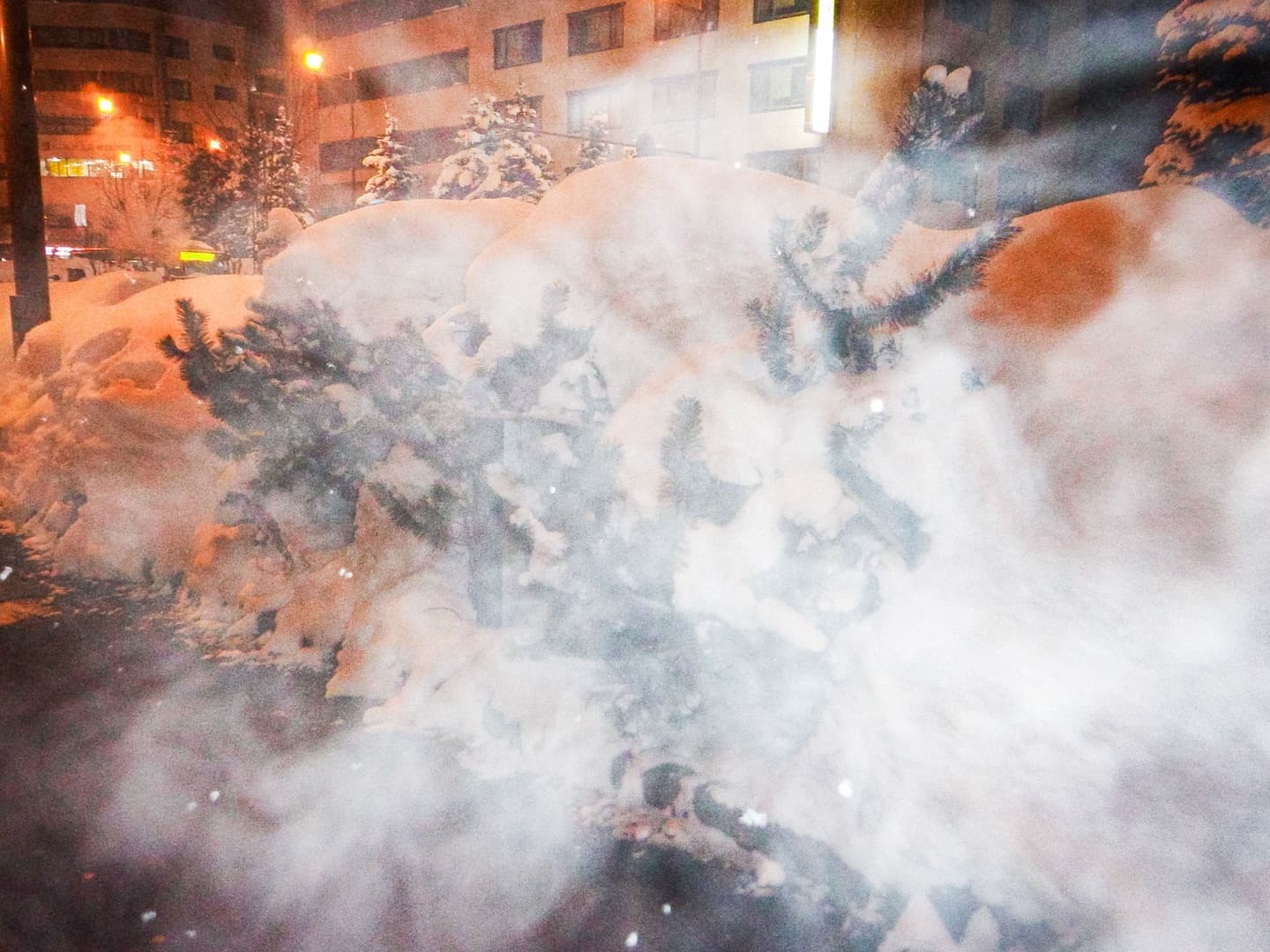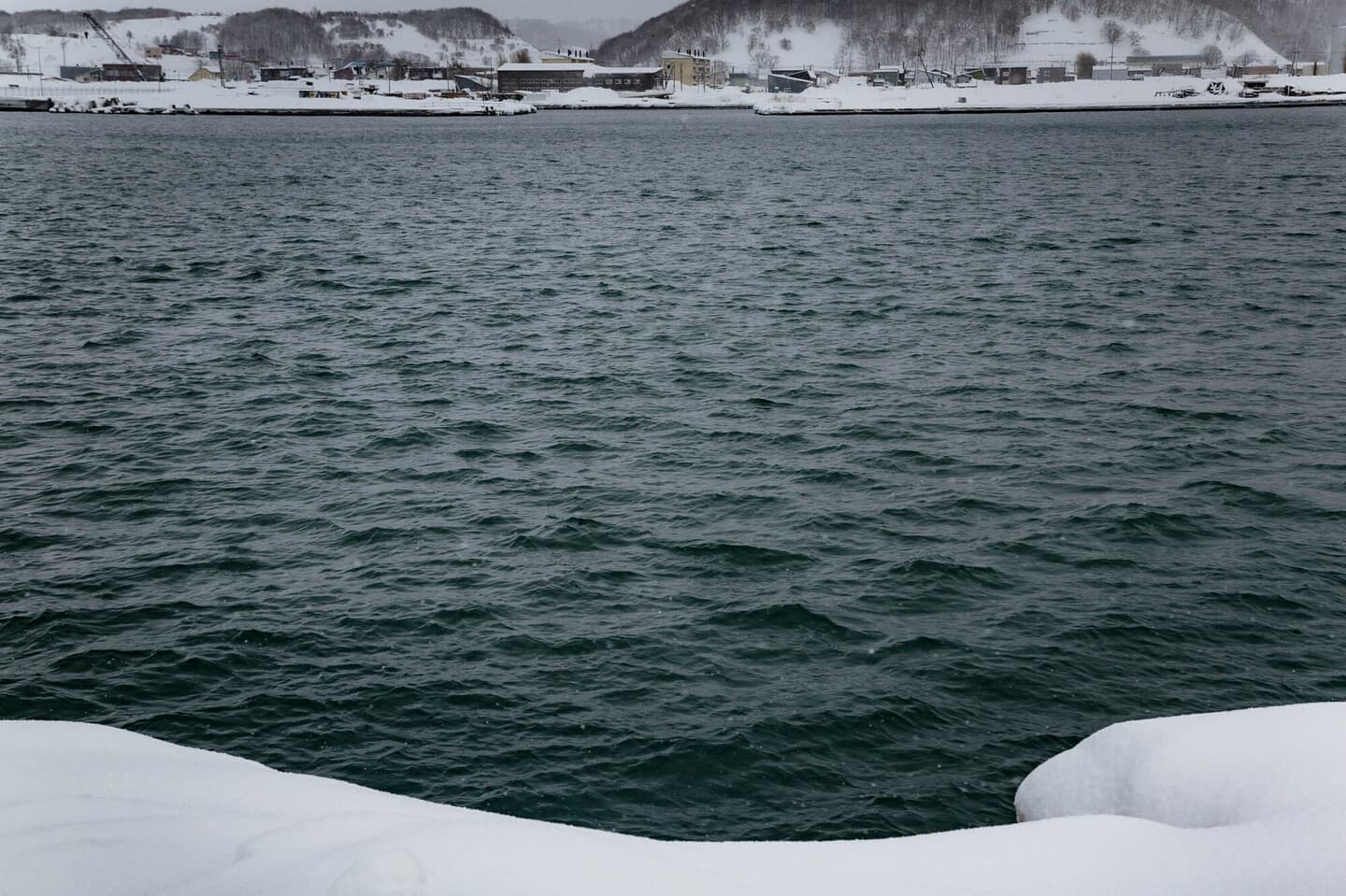
《昼の海》
The Noon Sea
2024
Performance, Photography / Inkjet print, Compact digital camera
私が介護職員として勤務している、東京の「山谷」地域にある介護施設「山友荘」。「山谷」は現在高齢化が進み、「日雇い労働者の街」から「ケアの街」へと変化しているという。山友荘の入居者の方の経歴や健康状態はそれぞれで、介助が必要な方もそうでない方もいるが、その中のAさんは元々肉体労働をされていた方で、いまは認知症や身体の不調でなかなか部屋から出られない状況だった。
しかし、彼は数年前に突然「カメラが欲しい」と言い、それからいつもデジタルカメラを首から下げていた。寝る時も食事の時も、彼のそばにはいつもそのカメラがあった。時折、部屋に向かって写真を撮ったり、自分自身を撮ったりしていた。
「山友荘」という場所は元々ドヤという簡易宿所を改装したこともあり、部屋は決して広くはない。けれど、私が彼の写真を見た時、彼にはその部屋の中で、私には見えない「景色」のようなものが確かに見えていて、言葉に表せない感覚を持ってそれを撮影していることを感じ、とても感動した。
私は、Aさんのことをもっと知りたいと思った。彼に見えている「景色」を見たいと思った。しかしAさんには身寄りがないため、わずかな書類の情報や、一度だけ歌った歌、一度だけ叫んでいた「船が出るぞー!」という言葉しか手がかりがなかった。
私は、彼が見ていたかもしれない景色を追いかけるため、彼の故郷と考えられる、北海道にあるかつて炭鉱で栄えていた町に訪れた。そして彼が船を見ていたかもしれない港町を訪れた。凍えるほど雪の降る中で何度か本当に死にそうになりながら、写真を撮った。
タイトルは、Aさんが一度だけ突然歌い出した「海」という童謡の歌詞から。
「海」 (1913) 作詞・作曲 不詳
松原遠く消ゆるところ
白帆の影は浮かぶ
干網 浜に高くして
かもめは低く波に飛ぶ
見よ 昼の海
見よ 昼の海
The residents of the nursing home have different backgrounds and health conditions; some need assistance while others do not. Among them, Mr. B, a former manual laborer, now lives with dementia and physical difficulties that make it hard for him to leave his room.
But a few years ago, he suddenly said, “I want a camera,” and from that day on he always wore a digital camera around his neck. Whether he was sleeping or eating, that camera was always by his side. At times, he would raise it toward his room to take a photo or two, or even take pictures of himself.
The nursing home was once a doya, a simple lodging house, so the rooms are quite small. Yet when I looked at his photographs, I felt that within that small room he could truly see a kind of “scenery” invisible to me—capturing it with a sense that words cannot convey. I was deeply moved by this.
I wanted to know more about Mr. B. I wanted to see the “scenery” he was seeing. But since he had no relatives, the only traces I could rely on were a few documents, a children’s song he sang just once, and the words he shouted only once: “The ship is leaving!”
Driven by these fragments, I traveled in search of the landscape he might have seen. I went to Hokkaido in winter, to a coal-mining town that once prospered, and then to a nearby port town where he might have watched ships and taken pictures. In the freezing snow, there were times I truly felt close to death as I took photographs.
The title comes from the lyrics of “Umi” (The Sea), a children’s song he once suddenly began to sing out of nowhere.
“The Sea” (1913) Lyrics and music unknown
Where the pine groves disappear in the distance
The shadows of white sails float
When the nets are high on the beach
Seagulls fly low in the waves
See the sea at noon
See the sea at noon
